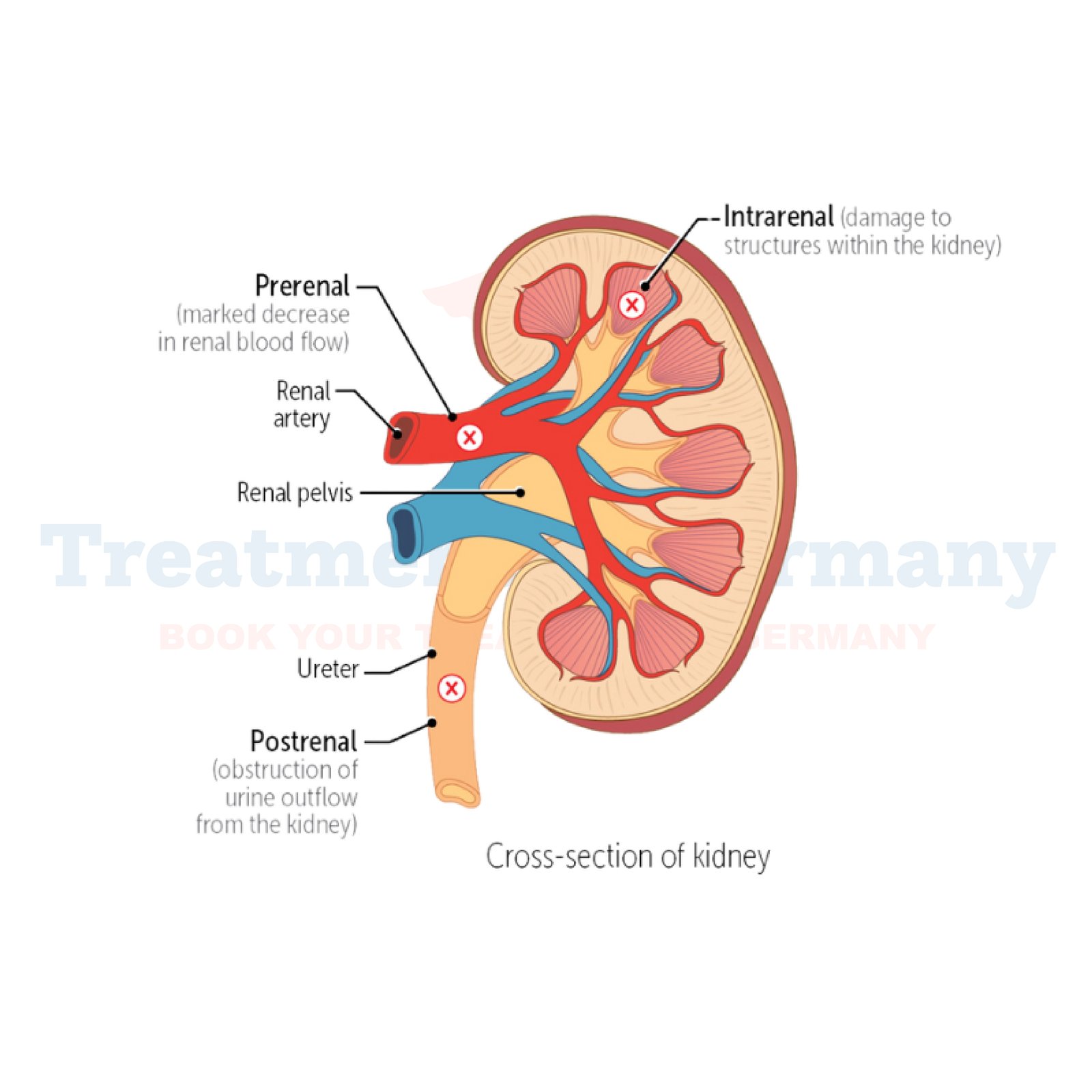What is Acute Kidney Injury (AKI)?
Acute Kidney Injury (AKI) refers to a sudden and rapid decline in kidney function, occurring over a few hours or days. This condition disrupts the kidneys' ability to filter waste products and excess fluids from the blood effectively. AKI can result from various factors, including severe infections, dehydration, medications, or underlying health conditions such as heart failure or liver disease.
Side effects of Acute Kidney Injury (AKI):
The consequences of Acute Kidney Injury can be severe, impacting multiple organ systems and potentially leading to life-threatening complications if left untreated. Common side effects of AKI may include:
How is Acute Kidney Injury (AKI) diagnosed?
Diagnosing Acute Kidney Injury typically involves a combination of medical history review, physical examination, and laboratory tests. Healthcare providers in Germany may conduct the following diagnostic procedures:
Potential treatments of Acute Kidney Injury (AKI):
The management of AKI focuses on treating the underlying cause, preventing complications, and restoring kidney function. Treatment options available in Germany may include:
👉 Contact us for further information and receive a complimentary consultation.


.webp)
 (1).webp)

.webp)
 (1).webp)


.webp)
 (1).webp)

.webp)
 (1).webp)
